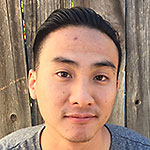
A church auntie snatched the microphone out of my hand. “Enough! You’ve said enough; now sit down.”
“Young people,” I heard someone mutter as I sat down.
I boiled with anger and hurt. Apparently, I wasn’t allowed to share my feelings and ideas because I was too young.
Kids Get Hurt
It was the summer after my first year of college. The youth group parents of my Taiwanese immigrant church gathered with the youth to hold a conversation about the best possible methods for how to run our youth group.
It sounded ideal, but much to my surprise and shock, the dialogue began with a lecture, with parents voicing their opinions on how the youth were ignorant, clueless, and arrogant for seemingly not wanting the parents to help plan the programs.
After hearing the parents repeat how, “your leaders are burning out, and none of you communicate with us,” and “we have no youth pastor, and you young people know nothing about how to make a program work!”, I felt like I was going to explode.
I looked at my peers and saw that look on all their faces — the look that appears when we’re scolded for getting a B, or when we forget to do the dishes. It was pitiful. Without planning what to say, I jumped up and grabbed the mic. “I’m sorry.”
“Friends, I’m sorry that you feel let down by the people who are supposed to be nurturing. I’m sorry the church isn’t being faithful to your needs. Parents, please listen to us. We don’t need more programs, more workshops, more structures that oppress us. We need your support, and — ”
And that’s where I was told to sit down.
Parents Get Hurt Too
A few years later, I brought up this instance during lunch with my mā (mom).
I shared how many of my experiences interacting with first-generation Asian Americans have led me to believe that my young age is a determining factor of the quality of work I do and what I can achieve. Whether it’s anticipating interviews for jobs or serving in church ministry, I often doubt that I can do a job well done because I have been taught that “young” is synonymous with “ineffective”.
“Do you think Asian American kids are disrespectful?” I asked.
Māma (mother) paused before answering. “I don’t know.” She continued in Taiwanese. “But I do know that my generation would never have treated our parents the way we get treated by our children at times.”
“Is it because we grew up in an American culture — because of individualism?”
Māma rubbed her cheek. “Maybe. But I also think your generation doesn’t see what your parents did for you. We left everything we knew and immigrated to America for your sake. We were forced to start over, work hard jobs to earn money in a strange land with a foreign language. It is overwhelming to be an immigrant.
“Not to make you feel guilty,” she added quickly. “You didn’t choose to move to America.”
Her words hung heavily inside my heart. I wondered what it must have been like for my parents to have grown up with harsh rules and critical parental guidance, and then all of a sudden realize that their own children were just as critical toward them. After all the sacrifices, hardships, and trauma of immigration they suffered through, all Māma and Bàba (father) received in return was an ungrateful attitude from their children. No wonder they were hurt.
“So, parents wish we understood. And wish we would know the pain you had to go through in order to survive here in the U.S.” I replied. “And we children just don’t get it. What do we do?”
She played with a napkin as she processed this question. “Of course, there’s a possibility that individualism contributes to the gap and misunderstanding between generations. But it’s more of the fact that your generation tells my generation to follow the way you do things simply because your methods are new.”
“What we can do is find the good things of both generations and learn from each other’s cultures. If people want to learn from Asian culture, learn about treating your elders respectfully. Yes, it’s a Confucian value, but if it agrees with the Bible’s teachings about respect, then I think we can acknowledge it as a truth.”
“American culture has wonderful things, too,” she continued, “But I wish your generation would make efforts to learn from our traditions, too. My generation faces the challenge of change all the time, with both the changes of the 20th century and the changes that come along with being an immigrant.”
She looked at me and responded to my question with a question of her own: “Why can’t both sides reconcile our ways and listen to one another?”

Hurts Can Be Healed
From reflecting on my own and engaging in conversation with my mā, I have realized that both generations have trouble understanding one another, which has caused miscommunicated love and unintentional hurt.
I also came to realize that the particular gap between first- and second-generation Asian Americans was contributing to the problem of ageism within our Asian American church. If we could understand each other, we could work to close the gap between the generations, and prejudice could begin to diminish. In other words, making movements toward meeting each other in the middle of the gap, rather than further polarizing each other with our prejudices, might alleviate the symptoms of ageism.
Living in the Asian American culture gap is a disorienting place to live for both generations. Having compassion for each other can give us room to learn how to make the cultural gap a home, rather than a place to run from.
My generation needs to realize that our parents are wise; they have a plethora of experiences that will always be incredible and helpful. Disrespecting them is unacceptable, and judgment must always be reserved for God alone. We have no right to deny them our respect, love, and humility.
Both generations need to listen attentively to each other, offering and receiving empathy. We all need grace and understanding as we all navigate how to live in the world of Asian America.
Can both sides of the generation gap promise to make strides toward each other, instead of pushing each other away? Can we promise respect for the other, and empathy for the hardships each generation has struggled through? Can we promise to make efforts to close the gap through humility?
Perhaps we can look a little bit more like the Kingdom of God when we stop judging one another based on how young or old one is, how wise or foolish one might seem, or how strong or weak we consider the other to be. This generation gap gives us Asian American Christians a unique opportunity to allow God’s redemption to heal and reconcile our relationships with one another, so that ageism will not be the ruler of our churches, but that God would be the true, eternal, timeless, ageless Ruler.
Mutual Humbleness
When Mā finished talking during lunch, we looked at each other. It was an acknowledgement of the fact that it was the first time we both communicated what we felt the other needed to hear — without the presence of disrespect or tension. It became the beginning of a redeeming relationship.
Mā and I are learning what it means to meet each other in the middle of the generation gap by asking questions, sharing memories of the past and ideas for the future, and loving one another by experiencing the other’s preferences. I never regret the conversations I have with Māma because I gain perspective about where I come from, as I hope she gains perspective on the person whom I’ve become as a second generation Asian American. Together, the journey has been a growing process. Certainly Asian American churches can mutually embrace humility in generational tension in order to alleviate symptoms of ageism.

Serena Lee (she/her/hers) is an associate clinical social worker practicing as a therapist in Orange County providing mental health services for under-resourced individuals and groups. Serena graduated from Azusa Pacific University in Spring 2021 and is hoping to eventually earn her license and Ph.D in social work. Three most important passions in her life include church community, mental health and restorative justice, and theology. Some things that give her life are bouldering, playing and writing music, and hanging out with her friends!

John Enger Cheng serves as creative director of Inheritance. He is a Los Angeles-based artist, designer and illustrator. He graduated from the University of Southern California Roski School of Fine Arts and is co-founder of Winnow+Glean. You can see his illustrative work and store at madebyenger.com.